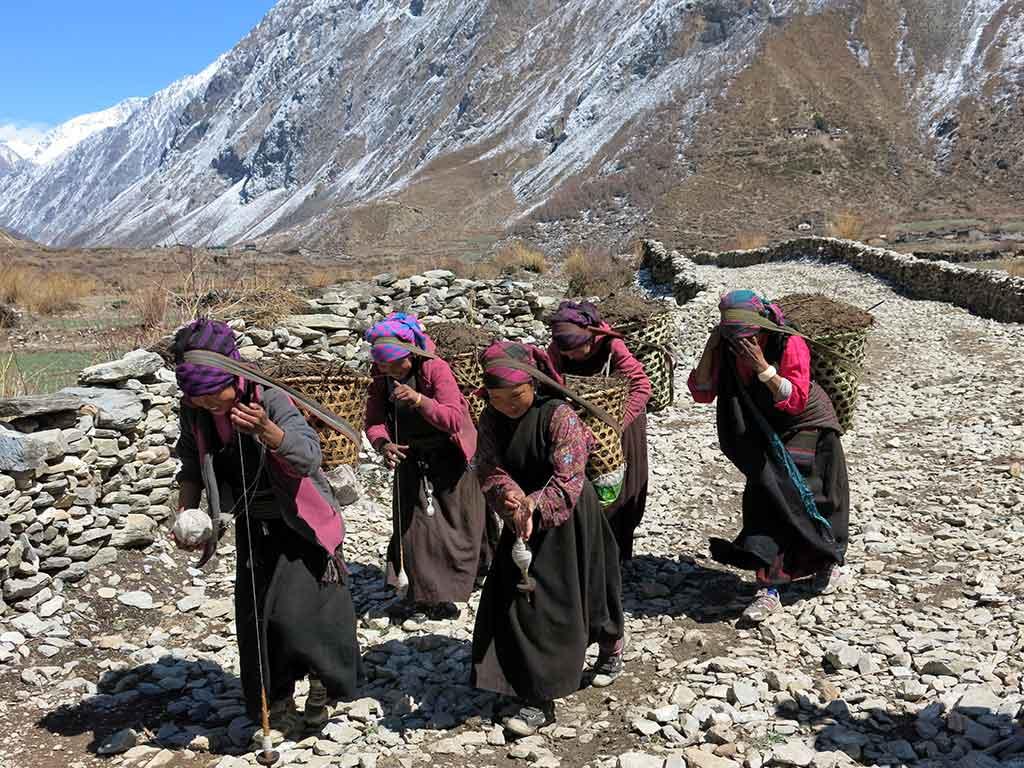
As part of our goal to generate a pluriversal understanding of solidarity in global health, qualitative work is being undertaken in the Himalayan communities in Nepal and India. This multiple case study research explores five purposively selected independent cases/examples of apparently solidaristic practices in everyday life like farming, birth, death, hunting, and marriages among the indigenous people of the Himalayas. The study was conducted between 11th – 23rd May 2024.
In phase 1, we created a shortlist of routine community-based apparently solidaristic practices that are characterised as collective action by a group of individuals who identify with each other in any respect to address needs or overcome challenges through mutual assistance and shared responsibility, in ways that promote welfare. The shortlist created through web search and through consultations with grassroots organisations Practices that could be deemed to be charity, extractive, disempowering, against justice and could diminish self-worth or motivated benefit were excluded.
In phase 2, consultations were held with bioethicists, global health practitioners and philosophers who have made significant contributions to the conceptualization of solidarity, to select 5-7 practices that might be most helpful in enhancing the theorisation of solidarity.

After this, informant and focus group discussions will be conducted, to obtain a community’s shared understanding of solidaristic practices.
Through this exploration of ways of living, we aim to enrich the understanding of solidarity and de-silence voices that are rarely heard. We acknowledge that there are multiple and diverse ways of understanding, interpreting, and experiencing solidarity. The study therefore does not look to be representational or exhaustive, instead, it only looks to improve and add to different and existing understandings of solidarity and desilence voices that remain unheard in policy spaces.
.
- Log in to post comments
